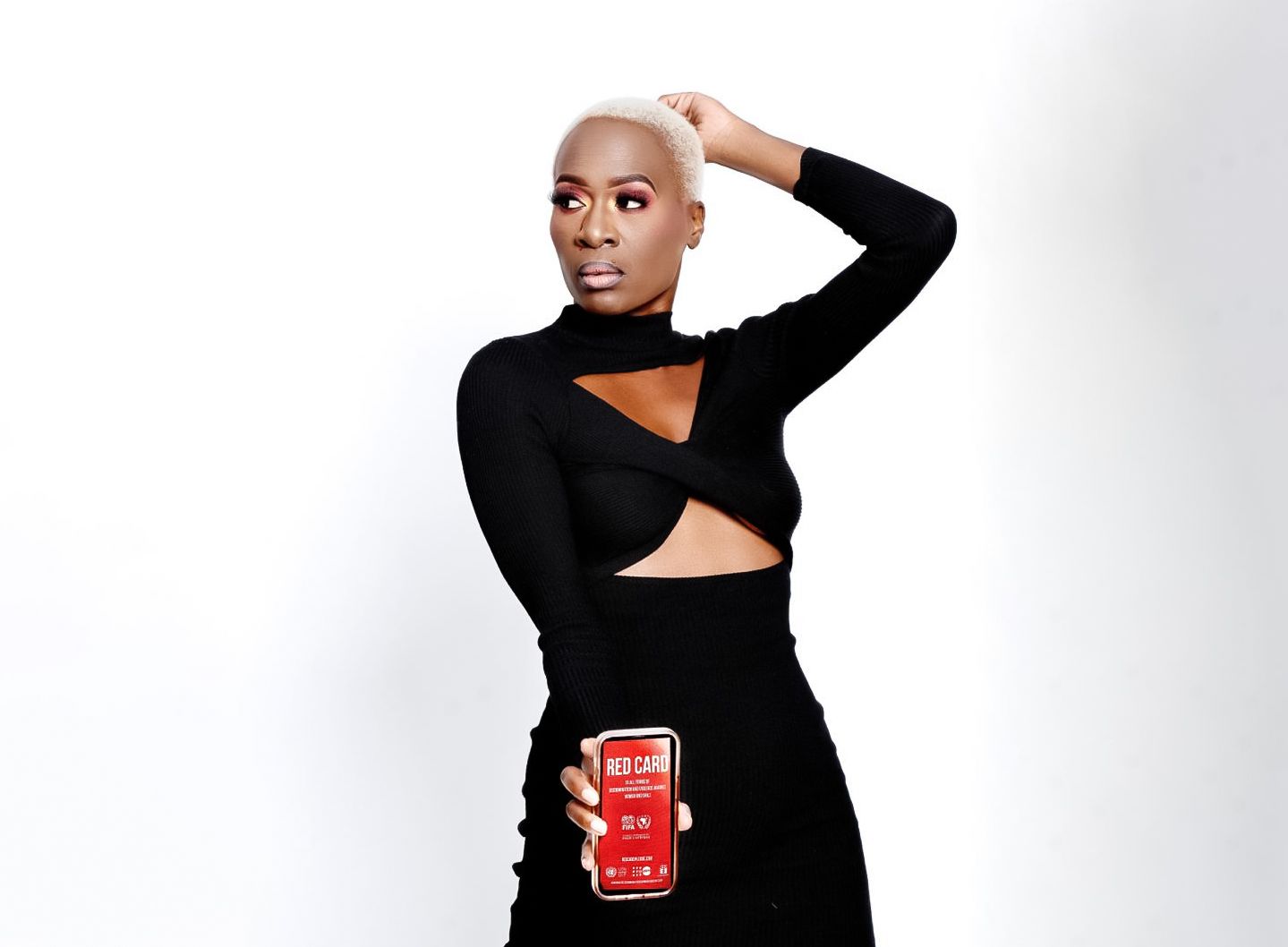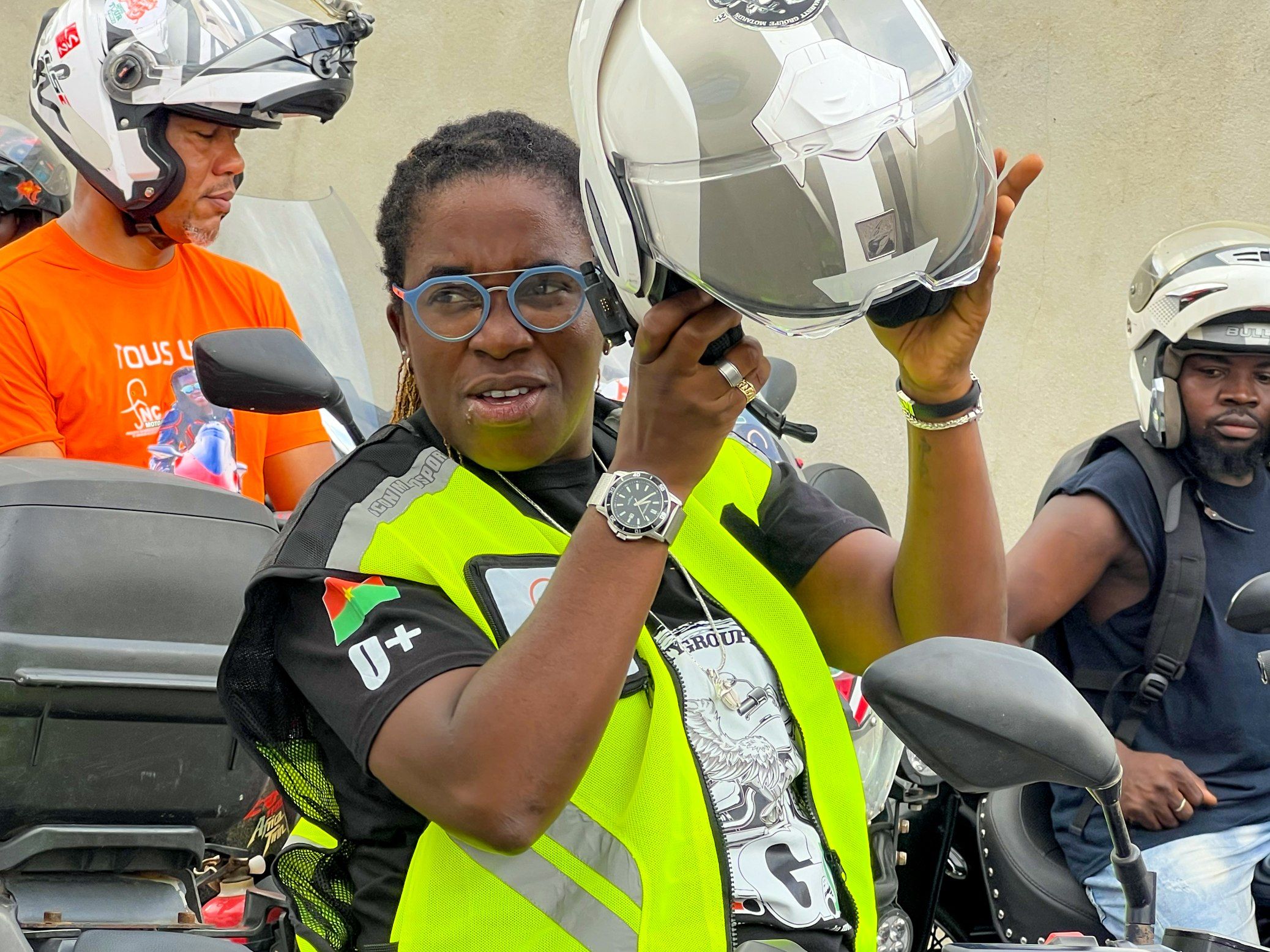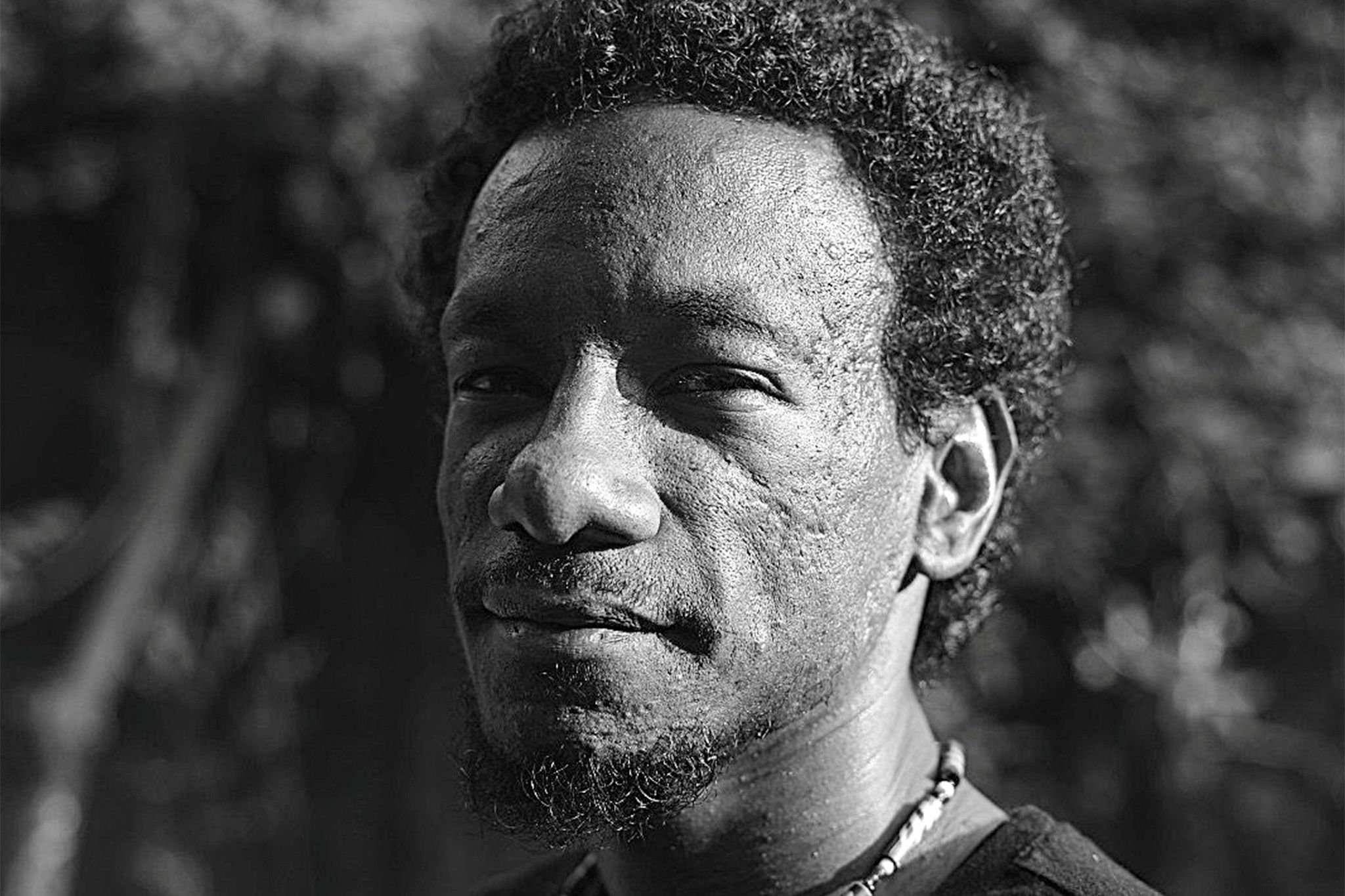Driven by a passion for humanitarian causes, runway model Sharon Okubo is championing a campaign that uses fashion to fight gender-based violence in Kenya.

Atieno Odera, bird story agency
Entering Watamu town in Kilifi County, north of Mombasa on the Indian Ocean, it is immediately apparent that an awareness of gender-based violence is widespread. The ‘RED CARD CAMPAIGN FASHION SHOW’ advertised loudly on a billboard at the town's entrance displays an image of international runway model Sharon Okubo.
The RED CARD campaign is a symbolic call-out to get the wider society to get involved in penalising gender-based discrimination and violence. Started by the non-profit African Renaissance and Diaspora Networks (ARDN), Okubo is an ambassador for the campaign, working closely with models and designers who are survivors of gender-based violence.
She advocates and campaigns with organisations and platforms to amplify the message, but keeps a clear focus on the sector she is familiar with: fashion.
“I can’t help but acknowledge the profound evolution it has undergone. In the past, the industry grappled with issues of abuse and discrimination, however, over time, significant strides have been made to address these concerns. The fashion world has progressively become more inclusive and diverse, marking a positive shift in the industry’s landscape,” Okubo shared.
Okubo's personal experience includes the loss of 3 model friends who took their own lives, allegedly due to discrimination and abuse.
“It happens a lot to models who are trying to start off in the fashion industry. While so much change is happening, so much needs to be done. I am determined to be part of the much-needed societal shift of ending gender-based violence against women and girls, through fashion," she shared.
The campaign is hoping to take the fashion show event advertised on the billboard country-wide in the coming year, with the next area of focus being Nairobi.
“The fashion industry is a powerful creative platform to influence and reinforce change when it comes to human rights. Over the years, things have changed with fashion being used as a powerful medium to raise awareness and advocate for human rights. In different issues, (with) clothing and design, models use their voices to bring about change. The industry has the capacity to change societal perception and push for positive change,” Okubi stated.
In October 2023, Okubo graced Brooklyn Fashion Week, strutting the runway in multi-awarded fashion designer John Guarnes' latest fashion wear. The black and white Mikado Silk garments featured a tribute to the diverse faces of women – a theme very much aligned with her advocacy for women and girls in her home country.

Okubo has been in the fashion industry for over 3 decades and is determined to use her experience and expertise as a tool in influencing social change by giving survivors of GBV an opportunity and platform to showcase their talent, build a market for their products and create awareness around abuse.
Born to a Kenyan father and mother from Trinidad and Tobago, Okubo spent the early years of her childhood in Kenya before moving to America.
The first 3 years were a nightmare for the model. She struggled to deal with the culture shock which led to depression.
"I wasn’t prepared for the culture shock. But we found our way, made the US our home, and started our life there,” Okubo said.
Settling in America, Okubo immersed herself in American culture while cherishing her diverse family heritage. Following her high school graduation, she pursued her higher education at the Fashion Institute of Technology in New York City. At the age of 17, she took her first steps on the local modelling scene, setting the stage for a remarkable career.
“My modelling career rapidly catapulted me to international runways in iconic fashion capitals such as New York City, Milan, and Paris," she narrated.
While working with designers like Lariza Glazirani, Paul Mitchell and Donna Karan, she also pursued an education which recently culminated in a doctorate in organisational development and leadership.
"This academic milestone reflects my commitment to also my personal growth and knowledge,” she narrated.
Another model involved in the Red Card campaign is gender-based violence survivor, Perez Wamaitha. Wamaitha was married at the age of 19, seeking marriage as a way out of a difficult home environment.
"I grew up in a very toxic environment as a child, with parents who were also very violent, which led me into an early marriage. At around 19 years I moved in with my then-boyfriend. Unfortunately, he also turned violent and would beat me at any provocation. I stayed, always hoping things would get better. I was in this marriage for two years and my breaking point was when he beat me while I was pregnant to the point that I lost the pregnancy. I ran away to Kilifi town to save myself, I needed a fresh start," she shared.
For Wamaitha, participating in the RED CARD fashion show is an opportunity to showcase her talent, earn an income and interact with other survivors who have shared their experiences as a path to healing their trauma.
“I would be glad if it is a continuous platform because it will be a platform to get more exposure and opportunities,” Perez said.
According to statistics provided by the Population Council in Kenya, 43% of 15-49-year-old women reported having experienced some form of gender-based violence in their lifetime, with 29% reporting an experience in the previous year; 16% of women reported having ever been sexually abused, and for 13%, this had happened in the last year.
In Kilifi County, about 6 cases of gender-based violence are brought before the courts every day.
Make-up artist, costume designer and owner of Dena Fashions, Joy Dena, shared that as glamorous as the industry often seems, she has not only faced but witnessed abuse and discrimination against women as well.
“Before people understand and embrace you, they will not pay as you deserve. And it takes time. But as a woman in the fashion industry, there is still a lot of discrimination and abusive trends especially towards models because they are seen as weaker. A lot of the management are interested in their personal gains while lying to the models that they are giving them exposure,” Dena shared.
Aside from her role as a RED CARD campaign ambassador, Okubo has also founded Andaa Vijana Initiative, an NGO primarily focused on empowering youths living with disabilities. The initiative provides youth with the support and resources they need, including social skills, community outreach, internships, school supplies and sanitary pads for girls.
bird story agency





